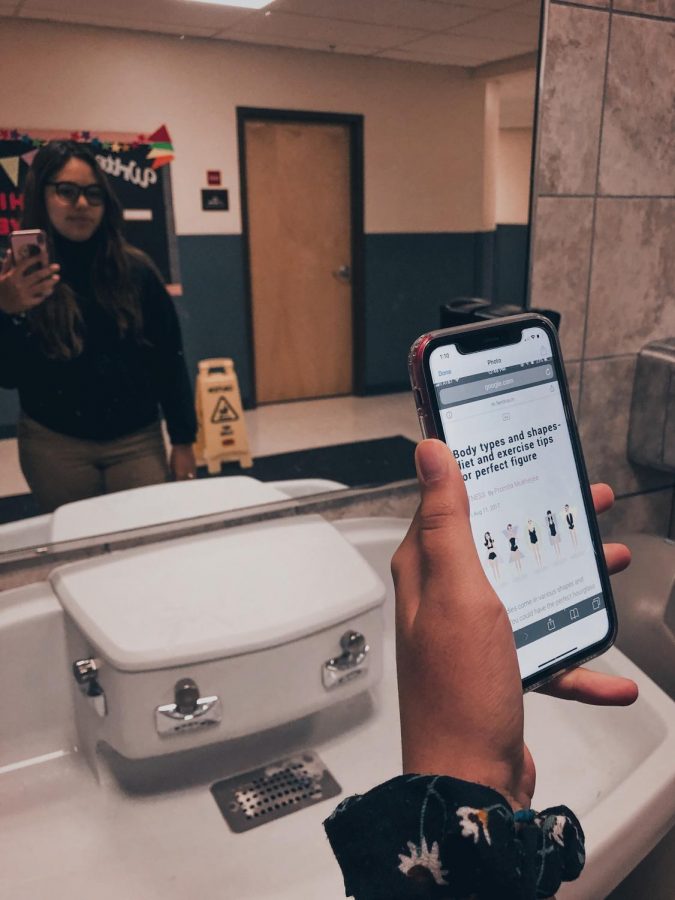Students Weigh In On Body Image
Senior Students Share Their Experiences With Body Image
Senior, Tiffany Valentine reads article on body type.
September 16, 2019
“You’re a fat worthless pig”, “You’re too thin, no man is ever going to want you”, “Ugly. Big. Gross.” These are some of the statements young adults are saying to themselves daily.
Social media is usually blamed for portraying an ”ideal body image” and setting ”standards” that causes people of all ages to look at themselves differently and lose confidence.
“We look up to people (social media influencers) that this is their job to look a certain way and they can dedicate their life to look this way or they have the means to look this way and the everyday person usually doesn’t.” Senior Valentina Ubaque said.
Continuous exposure to unrealistic media images of “flawless” humans can keep us aware of our own physical imperfections. Platforms such as social media and magazines targeted towards women usually promotes and encourage self-love and acceptance, yet they’re filled with pictures and articles on how to get the “sexy summer body”, a “bubble butt”, flat abs, the “hour glass” shape that “everyone wants” and the list goes on.
”It’s a sad thing because I feel like when it comes to your body, I think it’s more like loving yourself from within and the fact that the media creates this image of the typical body is really sad because everybody is beautiful.” Senior Zeniah Torres said.
Body Image issues begin as early as the age of 5. Studies conducted by Park Nicollet Melrose Center shows that over 80% of 10-year-old students are afraid of being fat. However, this percentage decreases to 78% by the time they reach 17.
“A person is so much more than their exterior even though everyone’s said the same thing, but it’s true and with age you realize more and more what your priorities really are and that you’re so much more than what people see.” Said Ubaque.
Due to social media many people compare themselves to unrealistic body standards and sometimes become conscious of even tiny things about themselves that didn’t bother them before, Torres has also had experiences with comparing herself with other people in the past.
”I think it’s a process that I’ve come to overcome and I’m definitely stronger with who I am and how I look.” said Torres.
Social media can really decrease a person’s overall well-being and the way they look at themselves in the mirror.
“Every time I go on social media and I see a guy with a six-pack and I really just feel down about myself because I don’t have a six-pack.” Senior Nathaniel Jenkins said.
For some people, these negative body image experiences start in the early stages of their lives and in many scenarios, it begins at home and creates a negative impact on the person’s life.
“Growing up I was really skinny so I always got that family member like ”You need to eat more” but like I eat enough and you know it can sometimes tear you down as a kid.” Said Torres.
Body image is a very serious issue that needs to be addressed more often because it is a problem that most people go through at some point and can lead to bigger issues associated with poor life quality, psychological distress and risk of unhealthy eating behaviors and eating disorders.



